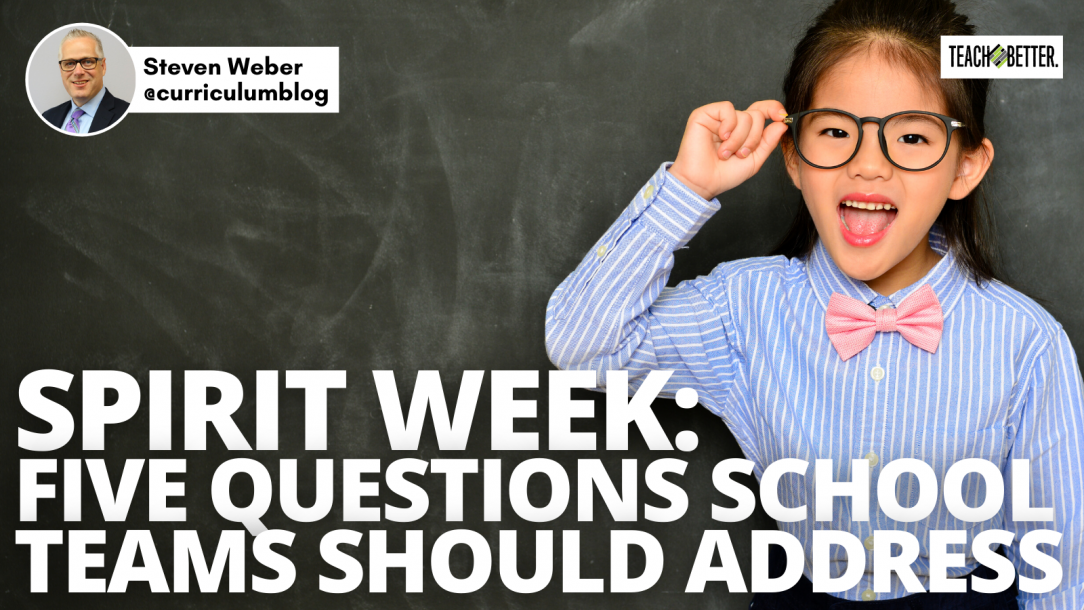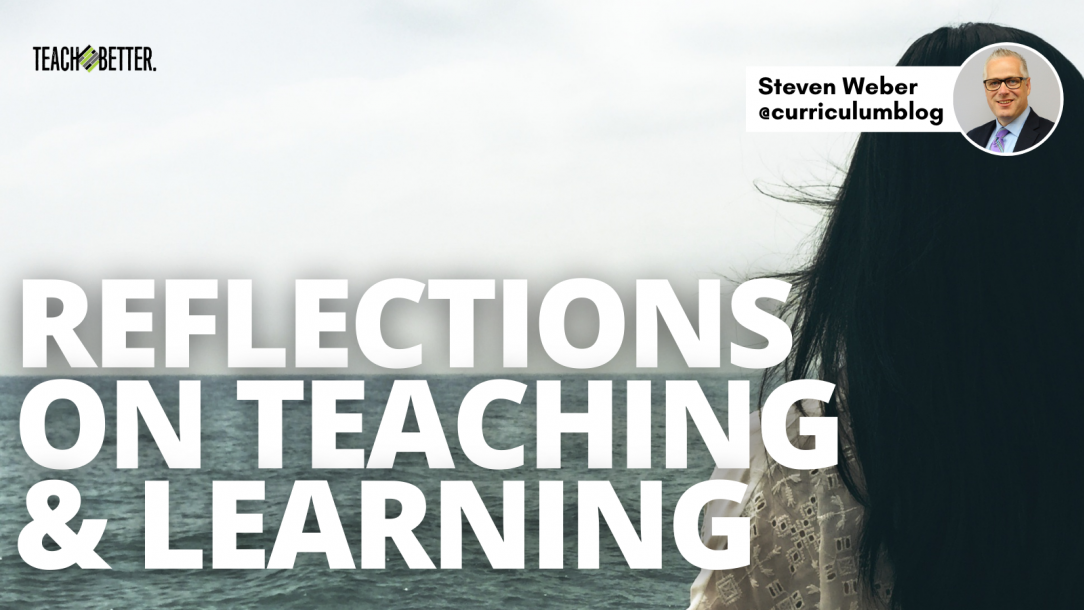TL;DR: It is crucial for instructional leaders to put the focus on student understanding. Ignite student understanding by developing common formative assessments, analyzing current levels of achievement, setting achievement goals, and sharing strategies. Igniting student understanding will happen when teacher teams create lessons to address the needs of learners. Instructional leaders focus on student understanding. Schmoker (2005) wrote, “It starts … Read More
Spirit Week: Five Questions School Teams Should Address
TL;DR: Spirit Week can have good intentions, but it is important to make all students feel included each day. Considerations are offered for the following Spirit Days: Beach Day, College Spirit Day, Disney Day, Fancy Friday, Jersey Day, School T-Shirt Day, and Tacky Christmas Sweater Day. Make sure you school’s theme week aligns to your school district’s mission statement. Spirit … Read More
Reflections on Teaching & Learning
TL;DR: This post shares reflections on teaching and learning through a career in K-12 education. Poverty impacts a student’s ability to perform at school. School staff ultimately determines opportunity to learn. Formative assessment is the silver bullet. Provide opportunities for students to inquire. It’s no longer important to focus on what the teachers can do with the content. The goal … Read More
Go Slow to Go Fast
TL;DR: Common concerns involving district initiative implementation include initiative fatigue, lack of time, failure to communicate, and lack of results. Supporting teaching and learning requires a thoughtful planning stage followed by a thorough implementation process. To find success with district initiative implementation, go slow to see long-term results. One of the main barriers to student understanding and school transformation is … Read More
Edujargon
TL;DR: Some examples of edujargon include backwards design, common formative assessment, data walls, essential questions, personalized learning, scaffolding, social emotional learning, whole child, and more. Buzzwords or edujargon can support a school’s continuous improvement plan, but there must be consistent implementation. This post includes six questions to help educators avoid the edujargon trap. Faculty meetings, principal newsletters, conversations with colleagues, … Read More






